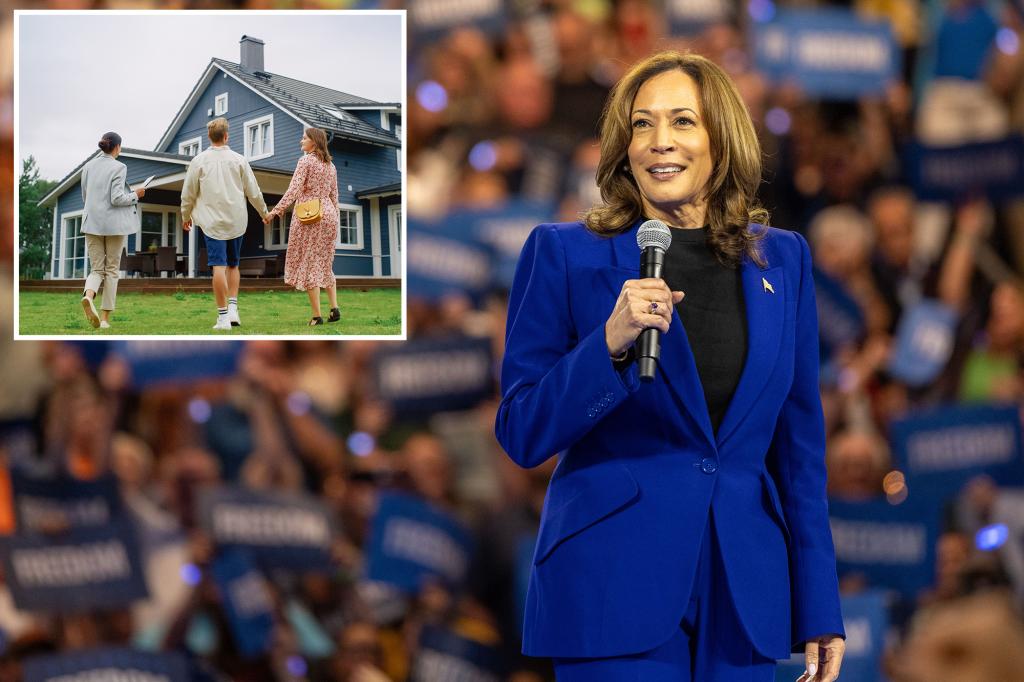Vice President Kamala Harris has revealed a comprehensive set of proposals regarding housing policy, providing a glimpse into what the housing market could look like under a potential Harris administration in the 2024 presidential race. This populist economic plan includes a signature housing policy offering up to $25,000 in federal down payment assistance for first-time homebuyers who have paid their rent on time for at least two years. The program aims to provide assistance to 4 million first-time buyers over four years, along with incentives for builders to construct starter homes, restrictions on investor purchases of single-family homes, and a ban on shared software platforms used by landlords to set rent prices. Additionally, the plan calls for the construction of 3 million new housing units over a four-year term, with an estimated cost of $200 billion over four years according to the Committee for a Responsible Federal Budget.
The surge in home values has left existing homeowners with significant equity but has made it difficult for many first-time buyers to enter the market. National home prices have seen a 48% increase over four years, making it challenging for aspiring homeowners to save for down payments. Harris’ down payment assistance proposal has sparked debate, with concerns that it could further drive up prices in an already hot housing market. While the details of the program remain unclear, there is speculation over who would qualify for assistance and how the funds would be distributed. The proposal has faced criticism from the Trump campaign, with claims that Harris aims to give $25,000 to illegal immigrants to buy homes, even though undocumented immigrants are not eligible for traditional mortgages or federal assistance.
Economists have expressed mixed reactions to Harris’ down payment assistance plan, with concerns that it could exacerbate the current housing crisis by boosting demand and driving prices higher. Some experts argue that addressing the supply shortage in the housing market is crucial to making homes more affordable. Suggestions have been made to assist small and independent homebuilders in securing financing to increase housing supply. While a federal subsidy for first-time buyers may contribute to inflation, tax credits for homebuilders could counterbalance the risk by stimulating construction. The National Association of Home Builders has commended Harris for focusing on housing affordability and increasing supply, emphasizing the need for targeted incentives tailored to local market conditions.
Historically, the federal government has provided subsidies for homebuyers during times of economic crisis, such as the $8,000 credit for first-time buyers in 2009 to stabilize the housing market during the global financial crisis. However, the current housing crisis reflects a supply shortage rather than a lack of demand, leading to soaring home prices that are out of reach for many families. The construction of new housing units plummeted after the 2007 housing market crash, and builders shifted towards constructing larger, more expensive homes with higher profit margins. Harris’ plan aims to stimulate the market for starter homes through tax credits for builders and down payment assistance for buyers, with the goal of encouraging more affordable housing options suited for first-time buyers.
With questions remaining about the specifics of the down payment assistance program, including eligibility criteria and funding distribution, experts are cautious about the potential impact of the proposal. While a $25,000 down payment credit could cover a significant portion of the down payment for certain price ranges, uncertainties exist about how buyers would qualify and the nature of the distribution mechanism. Overall, the program has the potential to help prospective homebuyers, but the details of its implementation will be crucial. As the housing market continues to face challenges related to affordability and supply, addressing these issues through targeted policy interventions could be vital in ensuring broader access to homeownership opportunities.













